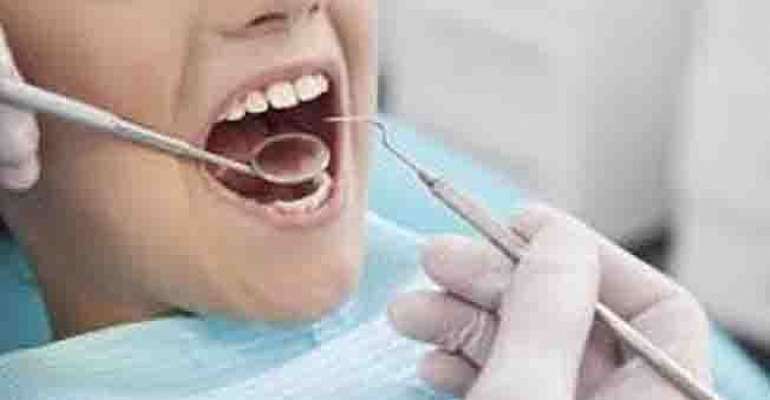'Why tooth picking is bad for oral health'

Dentists brainstorm in Lagos
THE health hazard inherent in the use of toothpicks or other sharp objects on the teeth may be more severe than most Nigerians thought.
Besides there link to most oral discomforts, they are potential recipe for grave diseases like mouth cancer, dentists have warned.
The dentists, under the aegis of the Nigerian Dental Association said this at a briefing to herald their biennial general meeting, currently holding in Lagos. Theme of the conference is: 'Nigeria at 100 years: The dentistry perspective.'
Scheduled for discussion at the scientific conference are challenges like low oral health awareness and a huge need for oral health care among the populace; misconceptions and absence of coordinated system for collective oral health date in the country. Others are inadequate manpower to meet the oral health needs and inadequate distribution of available oral health facilities.
Member of the association, Dr Evelyn Eshikena observed that several of the dental issues today have their origin in common bad habits among the populace.
Among the habits are use of toothpicks, pin, biting on hard substances like bones; all of which damage the enamel - a hard thin calcium-containing layer that covers and protects the crown of a tooth - and cause cracks.
'Tooth picking is a bad habit,' she said. 'We don't advise the use of wooden picks or pins to pick in-between your teeth. When you do, you tend to damage the gum and widen the space between the teeth. By the time you keep having food particles packing in-there, it cause diseases to the gum.
'What we advocate is the use of dental flosses - tiny ropes - that can be used to clean in-between the teeth together with the use of tooth brushes to prevent food packing in-between the gun as well as health of the gum,' she said.
Eshikena added that another bad-habit that should be condemned is eating in-between meals, especially sweet things. Most ideal is to eat fruits, which also help in teeth cleansing. She advised that the mouth should be rinsed properly with water after eating.
Tooth brushing. 'A lot of people go to the market to buy any type of toothbrush for use, including hard brushes that are just not right for everyone. But if you visit your dentist, he or she would be able to tell you the state of your teeth or oral health and prescribe the adequate type of brush that suits your need.
'Soft brushes are good for children and adults that have had damages to their teeth, those that had over the years used hard brushes and have damaged their enamel with attendant sensitivity. Medium-textured tooth brushes are advised for many people. Harder tooth brushes are advised for those who have stains on their teeth, like those who smoke or take a lot of coffee. The dentists have to teach you how to use them properly, so as not to cause further damages.'
Poor oral health and indulgence in bad habits, Dr Dunni Ogundana observed, account for gun diseases, dental caries, cancer of the mouth - caused by plaque (deposits) between the teeth and the gum. An unchecked hand-sucking by a baby can cause malocclusion - undesirable positioning of the teeth.
'There are other diseases linked to oral ill-health. Cardiovascular diseases and diabetes have been related to having a poor oral hygiene. Pregnant women that don't keep good oral hygiene tend to have babies with low birth weights and other associated condition. That is why we are advocating the need for proper mouth care; it is not only about the teeth but the whole body.'
Outgoing president of the association, Olurotimi Olojede noted that despite progress so far made in dentistry in the country, there are still huge gaps in number of facilities available and their inequitable distribution across the country.
Findings revealed there are a total of 440 dental clinics - all concentrated in the urban centres of the country. Corporate organisations and Mission Houses own about one per cent of these facilities.
On oral health, Olojede added that Nigerians should not wait till they have dental pains before consulting a dentist for routine check - ideally, twice a year.
'The moment you tell an average Nigerian of routine dental check, his or her response is 'my mouth is in perfect order; I don't need a dentist.' But time has proven that routine dental check is important and that would enable you to keep your dentition all through your life.'
Brand Manager, Pepsodent Unilever Nigeria Plc, George Umoh added that there are several awareness initiatives to enhance oral health, one of which is 'brush day and night' campaign. 'It is a proactive and preventive maintenance - maintaining proper oral health habits so as not to get to that point of cavity, pains and tooth extraction sets in.'
